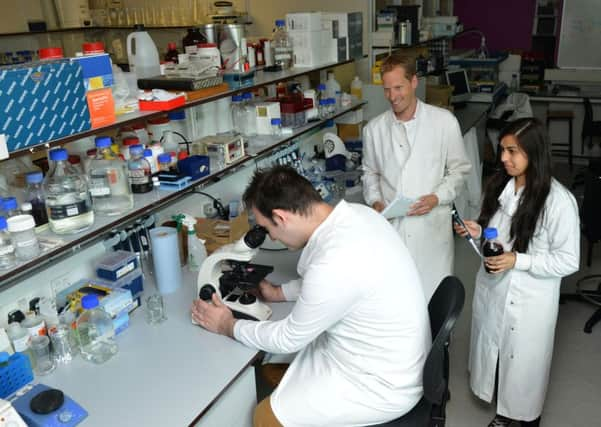Mary Alison: All patients deserve equal access to drugs


‘I am slowly coming to terms with the fact that I won’t see my children grow up. Cancer has taken that future away from me.” Hearing these words from a woman going through secondary breast cancer was utterly heartbreaking. For too many women in Scotland, their families and friends, this heartbreak is their reality.
For so many women with secondary breast cancer, innovative medicines represent a glimmer of hope; a door to the possibility of more time to make memories that will last beyond their lifetime. Too many of these doors though are closing on them.
Advertisement
Hide AdAdvertisement
Hide AdA few years ago, the Scottish Government reviewed the system that gives access to medicines and then reformed it. However, Breast Cancer Now is extremely concerned that all four drugs for secondary breast cancer that have been through this new system have been rejected. The reforms have increased the transparency of the system but not the number of “yes” decisions for breast cancer drugs coming from the Scottish Medicines Consortium (SMC).
As a result of this, to access these life-enhancing drugs, women have three choices: take on the bureaucracy of the local health board to apply for the drug; pay for the drug themselves; or, in some cases, contemplate moving to other parts of the UK where some of these drugs are available.
In Scotland, women not only face their battle against secondary breast cancer but a battle against the system that gives them access to hope. At the root of this issue are problems around the cost of medicines and the process used to agree whether the NHS can provide them. Drug companies need to acknowledge their responsibility to be flexible in offering a fair price that gives these drugs the best chance of being made available on the NHS.
At the same time, politicians have a responsibility to make sure that the systems in place in Scotland are fully geared towards unlocking innovative treatment options for women with breast cancer; options that are endorsed and supported by experts who are treating these women as being a good course of action. We can do things better. For example, the SMC needs to have the ability to talk frankly and openly with drug companies on cost-effectiveness.
The Individual Patient Treatment Request system is the way patients, with the help of their doctor, can apply for access to drugs that are not approved for use on the NHS. It is largely a local decision making process. Scotland also needs to look at whether these local health board processes are effective in making sure that every patient across Scotland has the same opportunity to access these drugs. The solutions to these problems are not straightforward. The Scottish Government’s commitment to have a fresh look at the current system is welcome. Over the coming months, process and pricing will rightly be debated but let’s not forget that at the heart of this are people. As one of our amazing supporters said recently: “For me and my family six months is enough time to have that last holiday, make some new memories, share some more love. My children will have to live a lifetime without me, so a treatment that can give me more time with them is priceless.
“I know that the cancer will beat me one day, however I would like to feel that I have been given every possible chance at life before it does.”
• Mary Alison is the director for Scotland for Breast Cancer Now